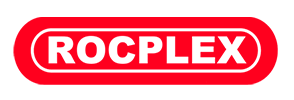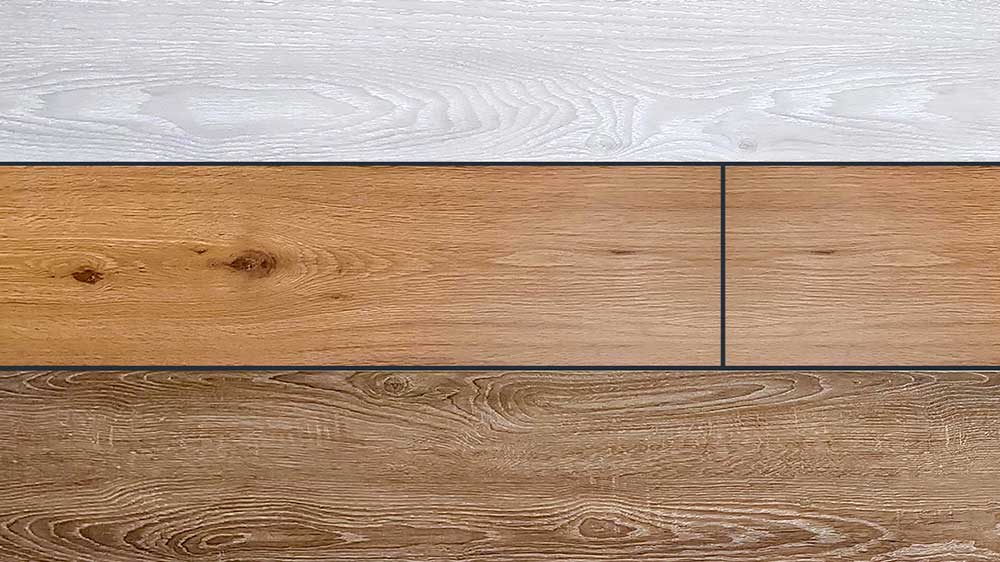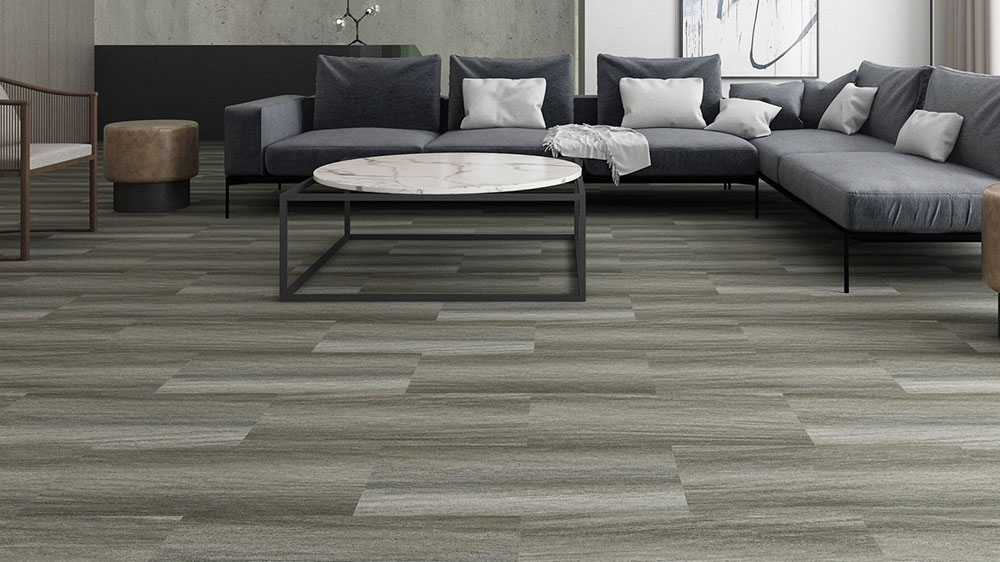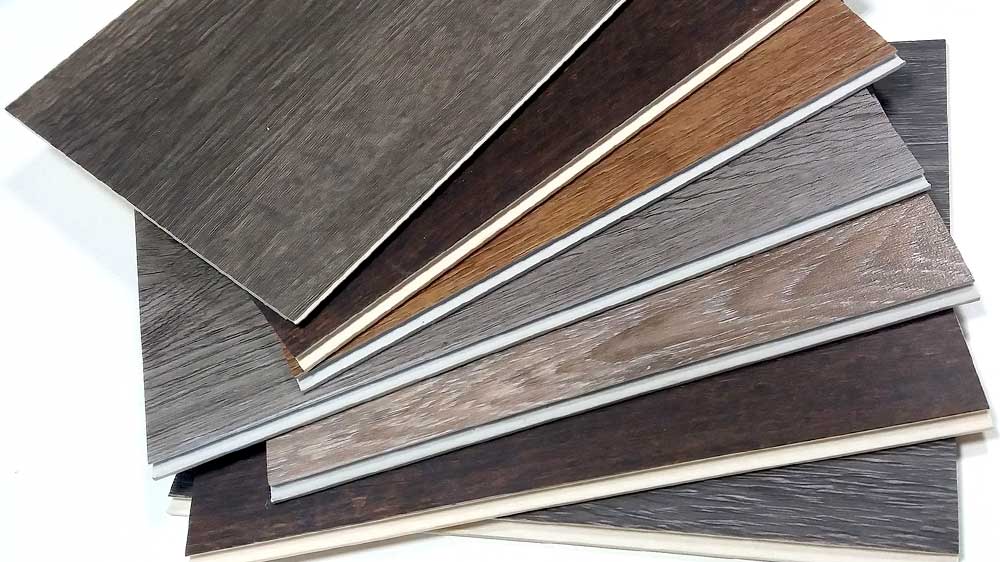What are Vinyl Flooring Planks?
Vinyl flooring planks have become a popular choice for modern interiors, offering both style and resilience. Made from synthetic materials, these planks are designed to mimic the appearance of hardwood, stone, or ceramic, adding a natural touch without the high costs or maintenance requirements. Unlike traditional flooring, vinyl flooring planks are water-resistant and durable, making them ideal for high-traffic areas in both residential and commercial settings.
Vinyl flooring planks are typically manufactured in layers. The primary layer, or “wear layer,” protects the flooring from scratches, stains, and wear. Beneath this is the printed design layer, which offers a realistic appearance of wood or stone. Other layers provide structure, flexibility, and support. A variety of options exists within vinyl flooring, each offering specific features. From luxury vinyl plank (LVP) to luxury vinyl tile (LVT) and engineered vinyl plank (EVP), each has qualities suited to different environments and budgets.
Types of Vinyl Flooring Planks
1. Luxury Vinyl Plank (LVP) Flooring
Luxury vinyl plank (LVP) is one of the most sought-after types of vinyl flooring. With its thick wear layer and waterproof core, LVP stands out as a durable and low-maintenance option for homes and businesses. Many people choose LVP due to its resemblance to real wood. These planks replicate the look of hardwood flooring with incredible accuracy, down to the grain patterns and color variations. However, they are more resistant to water and wear compared to natural wood.
LVP flooring is available in various styles, from rustic oak to contemporary gray finishes, allowing homeowners to customize their spaces easily. The installation of LVP is also straightforward, thanks to click-and-lock systems that simplify the process.
Benefits of Luxury Vinyl Plank
- Durability: Resists scratches and dents, suitable for pets and high traffic.
- Waterproof: Ideal for kitchens, bathrooms, and basements.
- Aesthetic Appeal: Available in numerous designs, mimicking natural wood.
2. Luxury Vinyl Tile (LVT) Flooring
Luxury vinyl tile (LVT) offers the same durable benefits as LVP but is manufactured in tile formats instead of planks. LVT is commonly chosen for areas where a stone or ceramic tile look is desired. With LVT, you get the luxurious feel of tile without the coldness or difficulty of installation that real tile often brings.
LVT can be installed in several patterns, such as herringbone, allowing homeowners to get creative. This flooring type is also perfect for commercial settings, providing a resilient surface that withstands heavy foot traffic without chipping or cracking like traditional tiles.
Benefits of Luxury Vinyl Tile
- Design Versatility: Can imitate marble, stone, or ceramic looks.
- Ease of Installation: Easier to install compared to real tiles.
- Low Maintenance: Resistant to spills and stains, requiring simple cleaning.
3. Engineered Vinyl Plank (EVP) Flooring
Engineered vinyl plank (EVP) is a more recent innovation in vinyl flooring, combining vinyl’s flexibility with the strength of engineered wood. This type features a rigid core, often made from stone plastic composite (SPC) or wood plastic composite (WPC). These cores enhance EVP’s durability, making it a prime choice for spaces where floors experience extreme wear or need a more stable structure.
Engineered vinyl plank is both waterproof and dimensionally stable, meaning it doesn’t warp or buckle under temperature changes. Its thick core also offers a softer feel underfoot, enhancing comfort.
Benefits of Engineered Vinyl Plank
- Structural Stability: Rigid core prevents expansion or contraction.
- Waterproof and Scratch-Resistant: Withstands spills and wear.
- Enhanced Comfort: Slightly cushioned feel for added comfort.
Choosing the Right Vinyl Flooring Planks for Your Space
When selecting vinyl flooring planks, understanding the specific requirements of your space is essential. Here are some factors to consider:
Water Resistance
If you plan to install vinyl flooring in high-moisture areas such as kitchens or bathrooms, choosing waterproof options like LVP or EVP is crucial. Water-resistant flooring is essential for preventing warping, stains, and other water-related damage.
Durability
For areas with heavy foot traffic, scratch-resistant and thick wear layers in flooring products like LVP or SPC-based EVP are beneficial. Thicker planks generally have better durability and are ideal for homes with pets or young children.
Aesthetic Appeal
Each type of vinyl flooring plank offers various aesthetic options, from realistic wood grains in LVP to stone and tile patterns in LVT. Choose a style that matches your décor while providing the right functional benefits for your needs.
Installation of Vinyl Flooring Planks
Vinyl flooring planks are popular due to their easy installation. They can often be installed without professional assistance, saving time and costs. Here’s an overview of common installation methods:
Click-and-Lock Installation
Most vinyl planks feature a click-and-lock mechanism that makes installation a breeze. Planks interlock without adhesives, creating a floating floor that can be installed directly over existing floors, making it ideal for renovations. This installation method is popular for DIY enthusiasts due to its simplicity and speed.
Glue-Down Installation
In spaces where extra stability is needed, glue-down installation is recommended. This method involves using adhesive to attach planks firmly to the subfloor, preventing shifting. Glue-down installation is often preferred for commercial spaces, as it withstands heavy traffic better.
Loose Lay Installation
Loose lay vinyl flooring requires no adhesive, relying on its weight and friction to stay in place. This method is beneficial for temporary setups or in spaces where flooring needs to be changed frequently.
Maintenance Tips for Vinyl Flooring Planks
To ensure your vinyl flooring planks remain in good condition, regular maintenance is necessary. Here are some tips:
Cleaning
- Routine Sweeping or Vacuuming: Remove dust and dirt to avoid scratches.
- Mopping: Use a damp mop with mild detergent to clean spills and stains.
- Avoid Harsh Chemicals: Harsh chemicals can damage the finish, so opt for mild, non-abrasive cleaners.
Preventative Measures
- Furniture Pads: Place pads under heavy furniture to prevent dents and scratches.
- Doormats: Use doormats to reduce dirt and moisture brought in from outside.
- No Waxing: Vinyl floors come with a protective layer; waxing can reduce their lifespan.
Pros and Cons of Vinyl Flooring Planks
Understanding the advantages and limitations of vinyl flooring planks can help in making an informed decision for your space.
Pros of Vinyl Flooring Planks
- Water Resistance: Vinyl flooring is highly water-resistant, making it a great option for bathrooms, kitchens, and basements.
- Durability: Most vinyl plank flooring is designed with a strong wear layer, providing resistance to scratches, dents, and stains.
- Ease of Maintenance: Vinyl flooring is simple to clean, requiring minimal upkeep to maintain its look and functionality.
- Aesthetic Versatility: Vinyl planks come in an array of designs, from wood and stone looks to modern and rustic styles, suitable for any interior.
- Affordability: Vinyl flooring provides a cost-effective solution compared to hardwood, tile, or stone without sacrificing quality or visual appeal.
- Comfort: Engineered options like EVP offer a softer, cushioned feel underfoot, enhancing comfort for prolonged standing.
Cons of Vinyl Flooring Planks
- Susceptible to Fading: Extended exposure to sunlight can lead to fading, so it’s best suited for areas without direct sunlight or with window treatments.
- Repair Challenges: Although durable, vinyl planks can be challenging to repair if damaged. Individual planks often need replacement.
- Environmental Impact: Vinyl is synthetic, so it doesn’t have the same environmental benefits as natural flooring materials. However, some manufacturers offer recycled vinyl options.
- Resale Value: Although visually appealing, vinyl flooring may not add the same resale value to a home as hardwood or stone, depending on market expectations.
Comparing Vinyl Flooring Plank Types: LVP, LVT, EVP, WPC, and SPC
To choose the best vinyl flooring plank, it’s helpful to compare the main types available:
Luxury Vinyl Plank (LVP) vs. Luxury Vinyl Tile (LVT)
While LVP and LVT both offer similar durability and waterproof features, they differ in design. LVP is crafted to replicate hardwood, making it ideal for spaces where a wood look is desired. In contrast, LVT is made to resemble stone or ceramic tiles, perfect for areas seeking a more sophisticated, tile-inspired look.
Engineered Vinyl Plank (EVP) vs. Wood Plastic Composite (WPC)
EVP and WPC both include a rigid core, enhancing stability and comfort. However, WPC offers a slightly softer, more cushioned feel, making it ideal for areas where comfort underfoot is prioritized, such as bedrooms or living rooms. EVP, on the other hand, provides a firmer feel, which can make it more durable for high-traffic or commercial spaces.
Stone Plastic Composite (SPC) vs. Wood Plastic Composite (WPC)
SPC features a stone-based core, making it more rigid and durable compared to WPC. This additional rigidity is beneficial for spaces requiring extreme durability, such as entryways or commercial areas. However, SPC’s firmness may make it less comfortable in areas where softer flooring is preferred.
Factors to Consider When Buying Vinyl Flooring Planks
When purchasing vinyl flooring planks, several considerations can help ensure the right choice for your space.
Wear Layer Thickness
The wear layer is crucial to the floor’s durability. Thicker wear layers are more resistant to scratches, scuffs, and stains, making them ideal for high-traffic areas. A 12-mil wear layer is often recommended for residential use, while a 20-mil wear layer or higher is suitable for commercial settings.
Core Type
The core type significantly impacts the performance and feel of vinyl planks. WPC and SPC cores offer rigidity and durability, with WPC being slightly softer and SPC providing increased resilience against heavy impacts.
Design and Finish
Vinyl flooring is available in an impressive range of colors, patterns, and finishes. From rustic wood grains to sleek stone-inspired designs, vinyl planks can complement any interior style. Some vinyl planks even include textured finishes to mimic the feel of natural materials.
Installation Requirements
Consider the installation method that best suits your needs. Floating or click-and-lock options are excellent for DIY projects, while glue-down installations provide additional stability for commercial spaces.
Price and Budget
Vinyl flooring planks vary in price based on features like wear layer thickness, design, and core material. Higher-end products with thicker wear layers and rigid cores will generally cost more, but they also offer superior durability and comfort.
Installation Costs and Professional Tips
The cost of vinyl flooring installation depends on factors like the product type, room size, and installation method. Here’s a breakdown:
DIY Installation
Click-and-lock vinyl planks are perfect for DIY installations, saving on professional labor costs. DIY installation generally requires minimal tools, and the process is manageable for most homeowners, especially with clear instructions.
Professional Installation
For complex installations, like glue-down or large commercial spaces, hiring a professional installer can ensure the job is done correctly. Professional installation can range from $1 to $3 per square foot, depending on the complexity.
Installation Tips
- Acclimate Planks: Allow planks to adjust to room temperature for 24-48 hours before installation.
- Prepare the Subfloor: Ensure the subfloor is clean, dry, and level for a smooth installation.
- Leave Expansion Space: Leave a small gap around the room’s perimeter to allow for expansion with temperature changes.
Vinyl Flooring Planks: Top Brands to Consider
Several reputable brands offer high-quality vinyl flooring options, each with unique features and benefits:
- Shaw Floors: Known for durability and a wide range of designs, Shaw’s LVP options are popular in residential and commercial markets.
- COREtec: This brand specializes in WPC and SPC cores, making it ideal for households needing extra water resistance and comfort.
- Mohawk: Mohawk offers both LVP and LVT, with designs mimicking natural materials in various colors and textures.
- Armstrong: With a focus on quality and aesthetics, Armstrong’s vinyl planks are designed to withstand heavy use, ideal for high-traffic spaces.
- Lifeproof: Sold exclusively through major retailers, Lifeproof vinyl is valued for its affordability and easy installation, making it perfect for DIY projects.
Environmental Impact of Vinyl Flooring Planks
Vinyl flooring is a synthetic product, raising concerns about environmental impact. However, advancements in manufacturing have led to more eco-friendly options, including:
Recyclable Vinyl
Many brands offer recyclable vinyl flooring, reducing waste at the end of the product’s lifespan. Recyclable vinyl planks can be repurposed into other vinyl products, supporting a circular economy.
Low VOC Emissions
High-quality vinyl flooring options are now available with low volatile organic compound (VOC) emissions, improving indoor air quality. VOC emissions have been a concern for indoor environments, but certified low-VOC products address these health concerns.
Sustainable Production
Some companies are committing to sustainable production practices, using recycled materials and reducing energy use. Brands that follow environmentally conscious production methods may offer certifications such as FloorScore or GreenGuard.
Vinyl Flooring Planks FAQs
Are vinyl flooring planks scratch-resistant?
Yes, most vinyl planks have a wear layer that resists scratches, making them suitable for high-traffic areas.
How do I clean vinyl flooring planks?
Use a damp mop with mild detergent, and avoid harsh chemicals to maintain the floor’s finish.
Can vinyl flooring be installed over concrete?
Yes, vinyl planks can be installed over concrete as long as the surface is clean, dry, and level.
Is vinyl flooring suitable for pet owners?
Absolutely, vinyl is scratch-resistant and easy to clean, making it a great choice for households with pets.
How does vinyl flooring compare to laminate flooring?
Vinyl is water-resistant and often more durable, while laminate may offer more natural-looking wood textures.
Post time: Nov-09-2024




